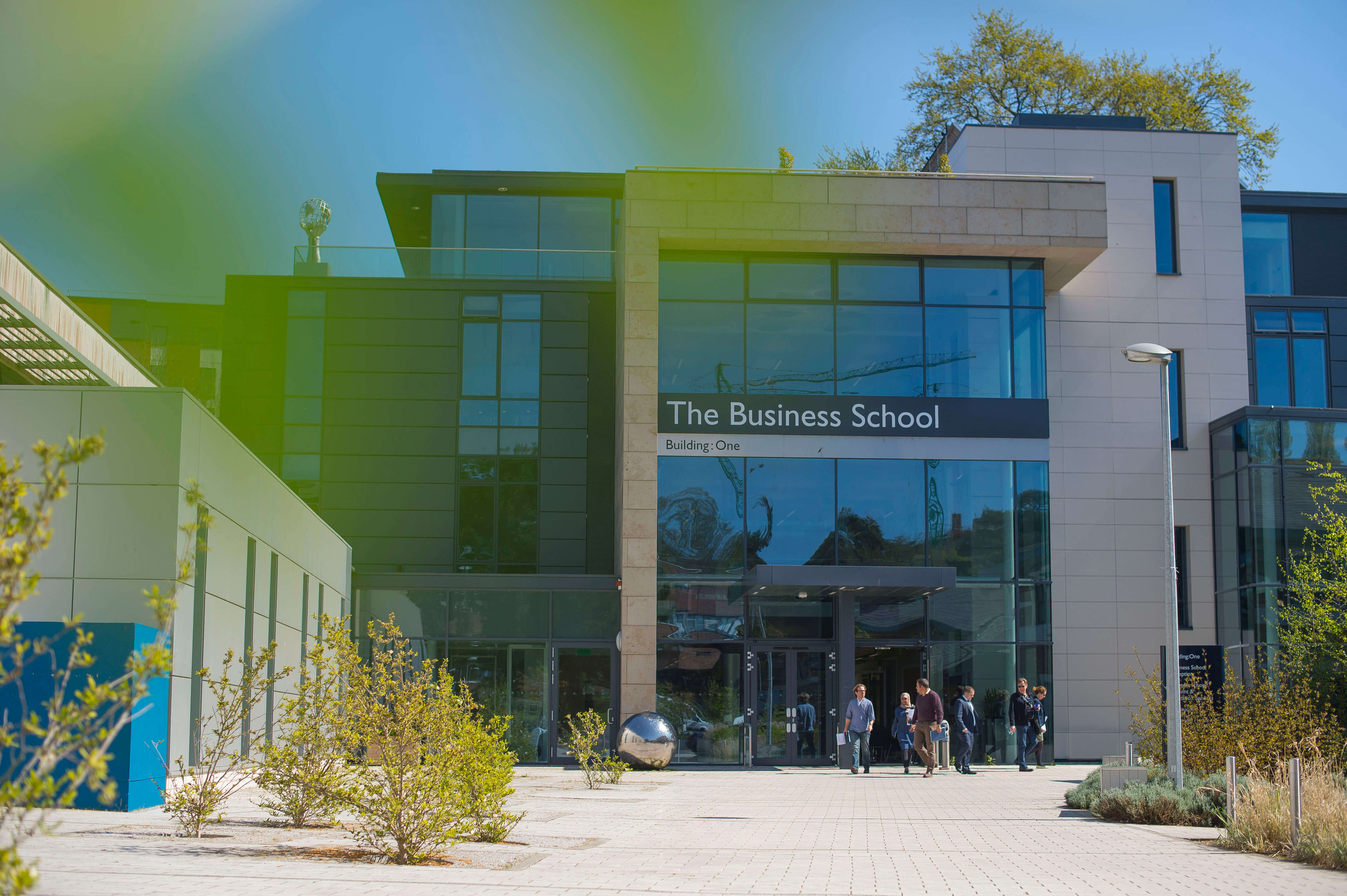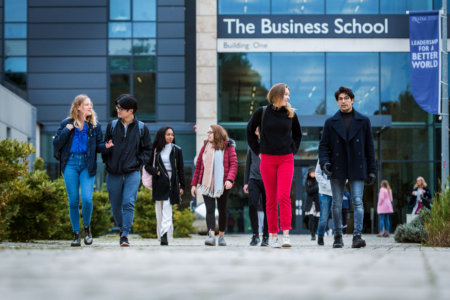The world is going green, fast. Economic powerhouses such as the EU and China have made bold commitments to become carbon neutral, the US under president-elect Joe Biden could soon re-join the Paris Agreement – and businesses too are making plans for the future that place the environment centre stage, fuelled by a global pandemic that in the first half of 2020 saw a record decline in CO2 emissions.
“I think we have a moment in time where the world as we know it has changed and business as usual must change and must stop. We have to reset and we have to reboot the future so that people feel empowered,” says Professor of Sustainable Business at the University of Exeter Business School, Gail Whiteman. Transdisciplinary science, including management theory, has an “essential role” to play in understanding the current threats to our world and identifying leverage points for action, according to Professor Whiteman.
At the triple-accredited University of Exeter Business School there is a world-class suite of programmes, community of scholars and international initiatives that contribute to this area. Courses, both at undergraduate and postgraduate level, have been designed around the importance of creating sustainable practice. The Business School is in multilateral collaborations to develop and deploy innovative business strategies aligned to the UN Sustainable Development Goals. Many of its academics, such as Professor Whiteman, advise at government and international levels. It’s an inspiring ecosystem – a forward-thinking, multidisciplinary approach to business education that prioritises people and the planet first.

Source: University of Exeter Business School
The Business School has many green credentials to its name. The schools’ flagship programme, The Exeter MBA, beat over 150 business schools across 24 countries to be ranked 11th globally in the Corporate Knights’ Better World MBA Rankings 2020. It’s a badge of honour and showcases its prowess across five indicators: the number of institutes and centres dedicated to sustainable development; the percentage of core courses that integrate sustainable development; faculty research publications; citations on sustainable development themes; and racial and gender diversity in the faculty.
“The core aim of The Exeter MBA is to inspire leaders for a better world, so it is hugely satisfying to be recognised as one of the top Business Schools encouraging students to think differently and address the social and environmental problems that threaten the future of business,” says Jackie Bagnall, Programme Director of The Exeter MBA.
This value is equally emphasised throughout the Business School’s research projects and initiatives. The Business School is working with more than 40 other institutions as part of a major EU-funded project worth nearly 10 million euros. The “Diverfarming” project aims to develop and test different cropping systems to increase land productivity and crop quality, while reducing machinery, fertilisers, pesticides, energy and water use.
At the Business School’s Land, Environment, Economics and Policy Institute (LEEP), researchers are developing knowledge and understanding to inform governments, businesses and communities about how land and the environment are managed and used; the policies that affect this; the impact upon people; and how policy should be better designed, appraised and evaluated.
The University is also leading a pioneering Circular Economy Centre in Technology Metal, where experts from the Business School’s Centre for Circular Economy will provide expertise alongside colleagues from the University’s Renewable Energy department, the Camborne School of Mines, and the Environment and Sustainability Institute.
The new research centre aims to revolutionise how crucial metals are extracted, used and reused in clean and digital technologies across the UK, including electric cars and wind turbines, with the end goal of creating a new life cycle for these materials that is secure and environmentally acceptable.
In 2021, the Business School will offer two new sustainability-driven courses: BSc Business and Environment and MSc Business, Sustainability and Innovation. The former is designed for students interested in becoming adaptable and resilient leaders, with the ability to understand the changing needs of modern business and who will drive change by contributing to long-term ethical solutions. Ethics, responsible innovation, sustainability accounting and circular economy are some of the modules that will be covered in the latter. Both will be taught by internationally-respected academics who are at the forefront of their research field and who will use this to shape the programme so students can take advantage of up-to-date course content.













